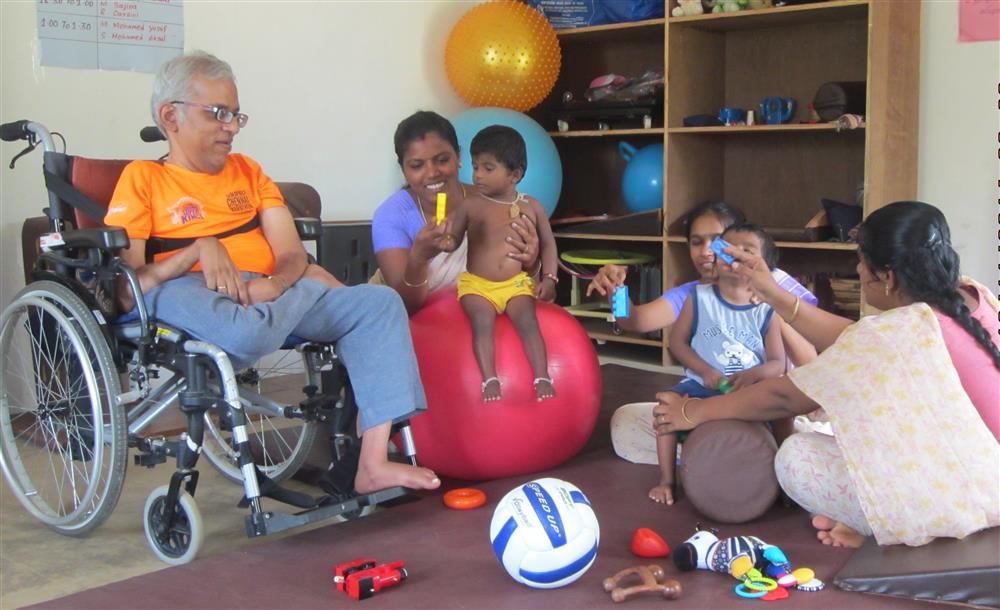App-based family centred early intervention therapy in rural communities
- Solution
- Training of Community Rehabilitation Workers
- Organization
- Amar Seva Sangam
- Country of Implementation
- India
- Region
- Asia & Pacific
- Subregion
- South Asia
- City
- Tirunelveti, Tamil Nadu
- Start Year
- 2014
- First published
- 31.01.2020

Solution details
“No child should be denied the school experience because of a disability.” S. Sankara Raman, Honorary Secretary, Amar Seva Sangam
Amar Seva Sangam is an NGO in the Indian state of Tamil Nadu focused on the support of people with disabilities in rural areas. The organization has trained over 1,800 community rehabilitation workers in rural areas to provide early intervention therapy in the home to children aged 0–6. It has developed an app whereby community rehabilitation workers, childcare workers and health workers can access support from rehabilitation specialists. This addresses gaps in provision and ensures that children in rural areas receive quality therapies. Its next step is scaling the project across the state in 2019–2020 with the support of the local government.
Problems Targeted
There is insufficient access to early intervention therapy services for children in India’s rural areas due to a lack of trained professionals and long distances to urban areas.
Solution, Innovation and Impact
The project offers community rehabilitation workers (CRWs) a three-day orientation, followed by a ten-day base training programme. Here, rehabilitation specialists such as physiotherapists and special educators teach basic knowledge and give demonstrations. Following base training, the CRWs have enrichment training every six months, including lectures, hands-on learning, and group work. The CRWs receive ongoing support through the Mobile Village-Based Rehabilitation – Early Intervention app. The app has learning modules that CRWs can use to educate themselves and the family members of the children they support. Rehabilitation specialists do an initial assessment of a child and enter their findings into the app, setting treatment goals and therapeutic protocols to be followed. CRWs implement the treatment plan, and specialists track progress using standardized developmental tools for motor, cognitive, mobility, and speech skills embedded in the app. Rehabilitation specialists visit each child once a month jointly with the CRW, providing therapy for the child and training for both the CRW and the child’s parents. Through the programme, over 40,700 children have been screened for delayed development. Over 1,700 caregivers have been supported, with 74 per cent reporting decreased strain and 62 per cent having improved interactions with their children.
Funding, Outlook and Transferability
The development and scaling of the app and home-based early intervention programme was grant funded by Grand Challenges Canada until March 2020, with additional funding from Handicare International and the Azim Premji Philanthropic Initiative. Funding from the government of Tamil Nadu and Grand Challenges Canada in 2019–2020 will expand the programme to 2,100 additional children; and further government funding will allow other NGOs to scale the programme across the state. The project’s ultimate aim is to cover all children with developmental disabilties living in rural Tamil Nadu (estimated at 54,000) by 2030.
Media
Related information
- Connections
- 2
-
Organization
- People